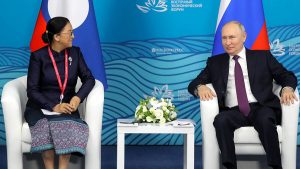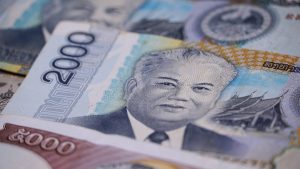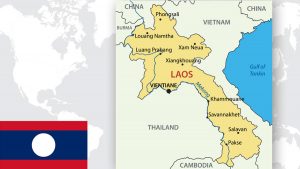Laos Implements Mandatory Bank Accounts for Foreign Investors
The Bank of the Lao PDR issued a new regulation that mandates foreign investors to open a local bank account within 15 days of obtaining a business license.
Laos Raises Immediate Excise Tax Rates on Specific Products
Laos has introduced a new decree introducing strategic excise tax adjustments on various products.
Laos – Russia 2023 Relations
We examine the strategic relations between Laos and Russia after the leaders of both countries met during the Far Eastern Economic Forum.
Laos Enhancing Cross Border Railway Connectivity with Malaysia, China
Malaysia and Laos aim to enhance cross-railway cooperation to improve trade through a Memorandum of Collaboration.
Laos Launches Digital Currency Trial
Laos has successfully trialed a digital currency prototype—the Digital Lao Kip—in cooperation with Japanese fintech company SORAMITSU.
A Guide to Taxation in Laos
All companies incorporated under Lao law will be subject to corporate income tax, value-added tax, and personal income tax.
India Eager for Expansion of Trilateral Highway to Cambodia, Laos, and Vietnam
India is keen to push for the expansion of the Trilateral Highway to Cambodia, Laos, and Vietnam and increase trade with ASEAN.
2023 Foreign Investment Opportunities in Laos
Laos has been a consistent recipient of Chinese investment for some time and is transforming the country into a land-linked nation.
The Laos-Vietnam Railway, Boosting Laos’ Ambitions to Become a Logistics Hub
The Laos-Vietnam railway is a proposed railway project aimed to further boost Laos’ ambitions to become a regional logistics hub.
Laos Issues Tax Obligations for Non-Resident E-commerce and Digital Platform Providers, Joins Other ASEAN Markets
The taxing of non-resident e-commerce and digital players in Laos is part of a continuing trend in ASEAN.

















